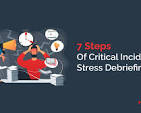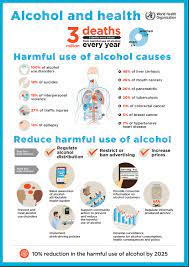The Importance of Critical Incident Stress Management
When individuals are exposed to traumatic events or critical incidents, it can have a significant impact on their mental and emotional well-being. Critical Incident Stress Management (CISM) is a structured approach designed to help individuals cope with the psychological effects of such events.
CISM involves various strategies and interventions aimed at providing support and assistance to those who have experienced or witnessed a critical incident. This can include debriefing sessions, individual counseling, group support, and education on stress management techniques.
One of the key components of CISM is the Critical Incident Stress Debriefing (CISD) process. This structured group discussion allows individuals to share their thoughts and feelings about the incident in a supportive environment. It helps participants process their emotions, normalize their reactions, and develop coping strategies.
It’s important to recognize that not everyone responds to critical incidents in the same way. Some individuals may experience acute stress reactions that can impact their ability to function effectively. CISM provides early intervention to help prevent long-term psychological issues such as post-traumatic stress disorder (PTSD).
Employers, emergency responders, healthcare professionals, and other organizations often implement CISM programs to support their staff members who may be exposed to traumatic events in the line of duty. By providing timely and effective support through CISM interventions, organizations can promote resilience, reduce absenteeism, and improve overall well-being.
In conclusion, Critical Incident Stress Management plays a crucial role in mitigating the negative impact of traumatic events on individuals’ mental health. By implementing CISM strategies and interventions, we can better support those affected by critical incidents and help them navigate through difficult times with resilience and strength.
6 Essential Tips for Managing Critical Incident Stress Effectively
- Acknowledge your feelings and reactions to the critical incident.
- Seek social support from colleagues, friends, or a counselor.
- Practice relaxation techniques such as deep breathing or meditation.
- Maintain a healthy lifestyle with proper nutrition, exercise, and sleep.
- Limit exposure to media coverage of the critical incident.
- Consider seeking professional help if needed to process the experience.
Acknowledge your feelings and reactions to the critical incident.
It is essential to acknowledge your feelings and reactions to the critical incident as part of effective critical incident stress management. By recognizing and accepting your emotional responses, you can begin to process and cope with the impact of the traumatic event. Denying or suppressing these feelings can lead to increased stress and potential long-term psychological issues. Embracing your emotions allows you to seek appropriate support, engage in self-care practices, and move towards healing and resilience in the aftermath of a critical incident.
Seek social support from colleagues, friends, or a counselor.
Seeking social support from colleagues, friends, or a counselor is a crucial tip in critical incident stress management. Talking to others about the traumatic event can provide a sense of relief and validation of emotions. Colleagues who experienced the same incident can offer empathy and understanding, while friends and family members can provide comfort and a listening ear. Additionally, seeking professional help from a counselor can offer specialized guidance and strategies to cope with the emotional aftermath of the critical incident. Building a support network is essential in processing emotions, reducing feelings of isolation, and promoting overall well-being during challenging times.
Practice relaxation techniques such as deep breathing or meditation.
To effectively manage critical incident stress, it is beneficial to incorporate relaxation techniques like deep breathing or meditation into your routine. These practices can help calm the mind, reduce anxiety, and promote a sense of inner peace amidst challenging situations. By focusing on deep, intentional breaths or engaging in mindful meditation, individuals can center themselves, regulate their emotions, and improve their overall well-being during times of heightened stress. Embracing these relaxation techniques can be a valuable tool in coping with the psychological effects of critical incidents and fostering resilience in the face of adversity.
Maintain a healthy lifestyle with proper nutrition, exercise, and sleep.
Maintaining a healthy lifestyle with proper nutrition, regular exercise, and sufficient sleep is crucial for effective critical incident stress management. A well-balanced diet rich in nutrients can support both physical and mental well-being, while regular exercise helps reduce stress levels and promotes overall resilience. Adequate sleep is essential for the body and mind to recover and recharge, enabling individuals to better cope with the emotional challenges of critical incidents. By prioritizing these lifestyle factors, individuals can enhance their ability to manage stress and build a strong foundation for mental health resilience in the face of adversity.
Limit exposure to media coverage of the critical incident.
Limiting exposure to media coverage of a critical incident is a crucial tip in managing stress effectively. Constantly watching or reading news updates about the incident can intensify feelings of fear, anxiety, and helplessness. By reducing media exposure, individuals can protect their mental well-being and prevent overwhelming themselves with distressing information. It allows them to focus on self-care, seek support from trusted sources, and process their emotions in a healthier manner. Setting boundaries with media consumption during such times can contribute to a sense of control and stability amidst uncertainty.
Consider seeking professional help if needed to process the experience.
In the realm of critical incident stress management, it is crucial to prioritize one’s mental well-being by acknowledging the potential impact of traumatic experiences. Seeking professional help when needed can provide individuals with the necessary support and guidance to process and cope with the aftermath of such incidents. Professional assistance from therapists, counselors, or mental health professionals can offer valuable insights, coping strategies, and a safe space for individuals to navigate their emotions and reactions effectively. Remember, reaching out for help is a sign of strength and self-care in times of distress.




